








| Garden Orb-web Spider (Araneus diadematus (Clerck, 1757)) |









|
|
Scientific name: Araneus diadematus (Clerck, 1757) Common name: Garden Orb-web Spider Other names: Cross Orb Weaver French name: Épeire diadème Order: Araneae Family: Argiopidae Size: 5 to 9 mm for the male, 12 to 17 mm for the female. Biotope: Woodlands, track sides, parks and gardens. Web: About 40cm in diameter. Observation period: You can observe adults form August to November. Geographic area: All Europe and a great part of Asia up to Japan. It was also introduced in North America.. |
The Garden Orb-web Spider shows an abdomen with a general triangular shape, rounded on each lateral front side and without any well marked tubercle. It dorsally bears a dark triangular patch with notched edges and showing some white streaks and dots drawing a cross marking at the front. This cross marking is not always very visible. The under side shows a dark median band between two pales streaks. The epigyne bears a long and thin scape with a curved tip. It builds a web, about 40cm in diameter, rather far from the ground, between small branches. It often hides next to the web, having put a signal thread informing when an insect is caught. Males usually come to fertilize females in September. They are often eaten after mating. The female dies during the first cold days. Garden Orb-wed Spiders overwinter as eggs. The baby spiders hatch out in spring. |
| [To know more about the Garden Orb-web Spider] [Next picture] [Top] |

|
The Garden Orb-web Spider is often seen in the centre of its web. |
| [To know more about the Garden Orb-web Spider] [Next picture] [Previous picture] [Top] |

|
Close view (camera on a tripod)) of the back of the Garden Orb-web Spider. Even with the tripod, there is still some blurring. Furthermore, with a 300mm focal length, low light conditions, a focus length of about 1.5m, the depth of field is about one millimetre. |
| [To know more about the Garden Orb-web Spider] [Next picture] [Previous picture] [Top] |
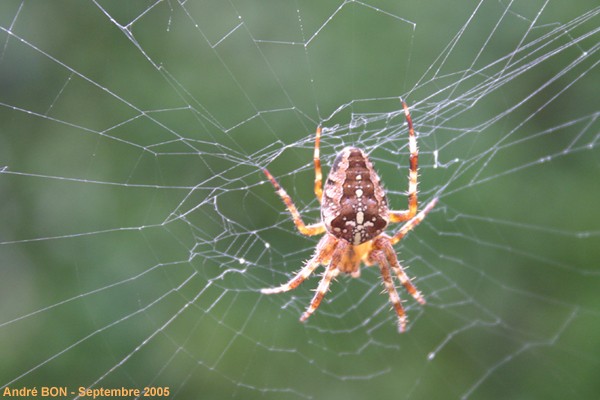
|
I autumn, you can find Garden Orb-web Spiders in every corner of the garden. |
| [To know more about the Garden Orb-web Spider] [Next picture] [Previous picture] [Top] |
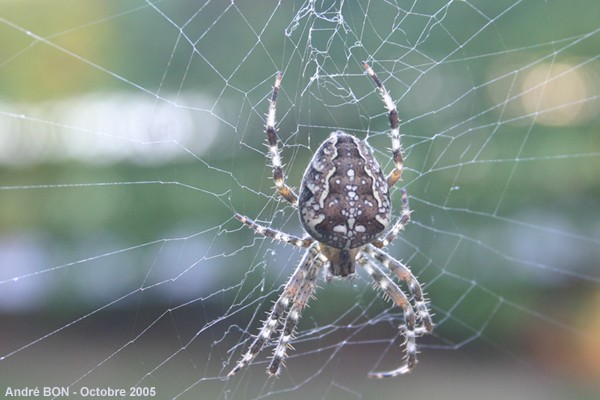
|
This web was ideally located, leaving a large free space to install the tripod for the camera. The lack of wind and the spider's stillness allowed to spend time to take the picture. |
| [To know more about the Garden Orb-web Spider] [Next picture] [Previous picture] [Top] |
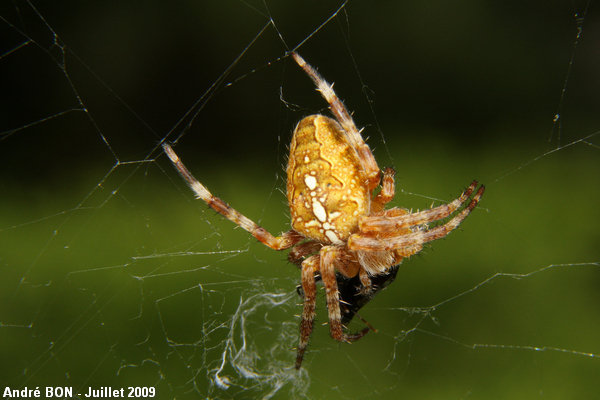
|
This time, I have approached with extender tubes and flash for a close-up picture. I still need to find the right angle of view to look at the Cross Orb Weaver in the eyes. |
| [To know more about the Garden Orb-web Spider] [Next picture] [Previous picture] [Top] |
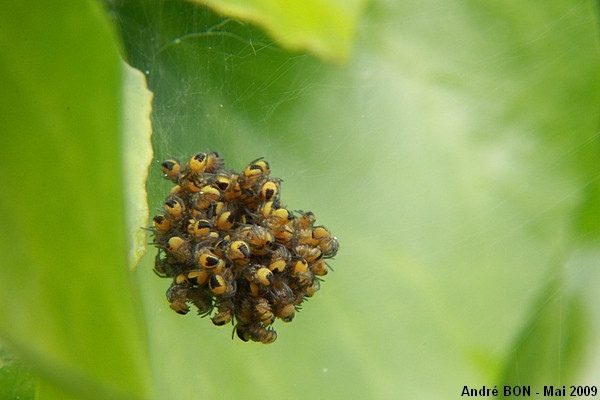
|
Adults Cross Orb Weavers have disappeared since the first very cold days. You can observed young Cross Orb Weavers gathered together in balls in spring. They will spread out over the garden. |
| [To know more about the Garden Orb-web Spider] [Next picture] [Previous picture] [Top] |

|
Any move to the foliage makes the young spiders spread out. They will gather again together in a ball in a few minutes. |
| [To know more about the Garden Orb-web Spider] [Next picture] [Previous picture] [Top] |
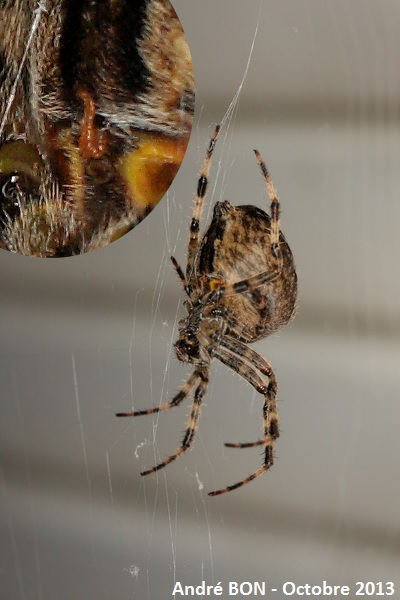
|
Here is a view of the long and thin scape of the epigyne with its curved tip. |
| [To know more about the Garden Orb-web Spider] [Previous picture] [Top] |
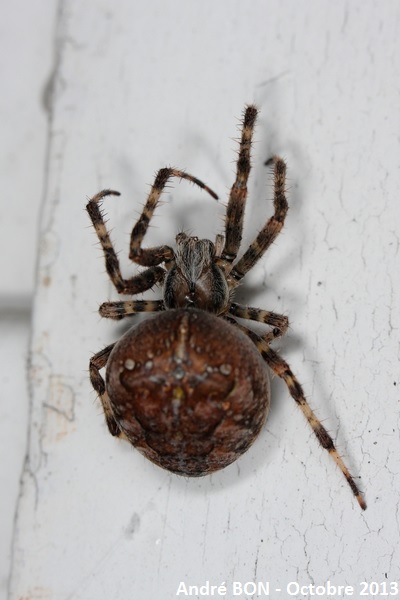
|
The cross marking of this Garden Orb-web Spider is hardly visible. |